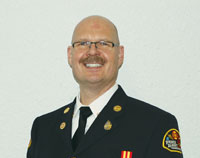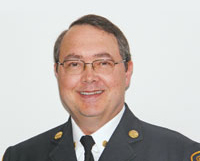
Features
Leadership
Leadership Forum: June 2014
It is absolutely amazing that we are in our fourth year of writing these joint columns for Fire Fighting in Canada.
June 2, 2014
By Les Karpluk and Lyle Quan
It is absolutely amazing that we are in our fourth year of writing these joint columns for Fire Fighting in Canada. As such, we thought it would be interesting to look back at our first column from March 2010, titled Reframing your future. This topic still has great meaning for us and for the fire service, because no matter where you are in your career – and your life – we believe you should always be looking ahead.
In that first column, we wrote about reframing your future on both organizational and personal levels. It is easier to reframe your future on a personal level because you are in control and you decide the steps necessary to succeed. Reframing the future of the organization is more challenging as external forces – politicians, staff and the taxpaying public – can impact how and when the reframing occurs due to political mandates, and labour or community-related needs.
Reframing the future of the organization starts with hiring the right people who are passionate about being in the profession. Whether you work for a career, volunteer or composite department, the recruitment process sets the foundation upon which to build and frame the future of the department. When recruiting, it is critical to keep your standards and expectations high. If the right recruit is not available, start the recruitment process over; it is worth the extra time and effort to do so as lowering the standard simply to get a body could haunt the department in the future if that less-than-stellar recruit ends up creating a negative environment within the department.
Today there is still a tendency to overlook the importance of succession planning for these new firefighters who will become our future officers. Part of succession planning is understanding and building upon members’ intrapersonal and interpersonal skills. Intrapersonal intelligence, or self-awareness, is the ability to understand what motivates you, what makes you get up in the morning and what you truly believe in.
Understanding intrapersonal intelligence leads not only to self-understanding and the ability to work effectively with others, but to a true sense of what a person is all about. We all appreciate employees who get along with people at all levels; therefore, we need to seek out recruits who have these good intrapersonal and interpersonal skills, such as good communication and problem-solving skills, and the ability to work as members of a team. Interpersonal skills enable you to work with others in a friendly and efficient manner. When it comes to recruiting, fire departments and human resources departments can easily incorporate interview questions that will help everyone understand the level of the candidates’ intrapersonal skills.
Another significant challenge for fire-service leaders is to ensure that interpersonal skills are developed in veteran staff. We make this statement because we believe senior staff already possess the technical skills required to do the job.
Sometimes, the interpersonal skills are referred to as the soft skills, but we believe these are the hard skills. Our type-A personalities make us more action-oriented than relationship-orientated and, at times, this can create problems in our stations. Let’s face it, we all know firefighters and officers who are highly skilled and are able to lead very efficiently and effectively during emergency operations and exude confidence in crisis situations, but fail at relationships and lack the skills to coach and mentor others. As such, we believe that having the people skills to deal with these non-technical situations at the station are as critical a component for officers as their technical knowledge.
Failing to develop interpersonal skills in our people will result in departments spending too much time problem solving. In fact, a lack of soft skills in people generally causes conflict situations that end up being pushed higher up the chain of command, which, in our view, is counter-productive to leadership growth. The column we wrote four years ago about reframing the future rings true today and we need to ensure that all of our people have the tools and skills required to do their jobs. In our opinion, there is a greater sense of urgency now because our communities and our staff expect more from our profession – and they deserve it. We really are in a glass house and everyone is watching; so what will they see in your actions and the actions of your department?

|
 |
Les Karpluk is the fire chief of the Prince Albert Fire Department in
Saskatchewan. Lyle Quan is the fire chief of Waterloo Fire Rescue in
Ontario. Both are
graduates of the Lakeland College Bachelor of Business in Emergency
Services program and Dalhousie University’s Fire Service Leadership and
Administration program. Contact Les at l.karpluk@sasktel.net and follow
him on twitter at @GenesisLes. Contact Lyle at lyle.quan@waterloo.ca and
follow him on twitter at @LyleQuan.
Print this page